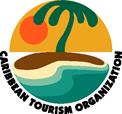As if plunging economies and unfavorable currency exchange weren’t enough to worry the Americas travel industry, a growing portion of the region is now under threat from two mosquito borne diseases, the Zika virus in the Caribbean and Latin America, and dengue fever in Hawaii.
The current outbreak of the Zika virus, which is transmitted by mosquitoes, began in Brazil last May and has since moved into more than 20 countries in the Caribbean and Latin America.
The mosquito-borne virus has been linked to birth defects in thousands of new born babies and the World Health Organization has warned that the virus could affect as many as four million people in the Americas.
The U.S. government is recommending that pregnant women stay away from areas where the virus has been found, including Brazil, which is getting ready to host the summer Olympics in just a few months. The only treatment to date against the virus is prevention.
 The World Health Organization (WHO) recently declared Zika an international public health emergency, a decision prompted by growing concern that it could cause birth defects.
The World Health Organization (WHO) recently declared Zika an international public health emergency, a decision prompted by growing concern that it could cause birth defects.
At a recent news conference in Geneva, Switzerland, Dr. Margaret Chan, the director general of the WHO, said that clusters of microcephaly in regions with Zika cases “constitute an extraordinary event and a public health threat to other parts of the world.”
An article in Caribbean 360 reports that the Zika virus is discouraging increasing numbers of American tourists from traveling to the Caribbean and Latin America, according to a new Reuters/Ipsos poll.
The poll is the latest sign that the virus could negatively impact tourism in the Caribbean, and some female athletes are questioning whether they will travel to Brazil to compete in the Olympics this summer.
 The Caribbean Tourism Organization, among others, has been closely monitoring the situation in its region, and has been issuing ongoing updates.
The Caribbean Tourism Organization, among others, has been closely monitoring the situation in its region, and has been issuing ongoing updates.
The latest CTO update, says in part: “The Caribbean Tourism Organization and the Caribbean Hotel & Tourism Association remain in close contact with the Caribbean Public Health Agency (CARPHA) to monitor and research the Zika cases in the Caribbean and to communicate prevention and control measures to residents and visitors, while the health authorities in our member countries are taking the necessary steps to limit the number of new cases.
“Local populations and visitors alike are assured that the Caribbean remains open for business and safe for travel. The CTO and CHTA will continue to work closely with CARPHA to assess the situation, but we encourage visitors to continue with their travel plans to the Caribbean and follow the advice and precautions issued by the World Health Organization, similar to those which are provided to travelers to most tropical destinations.
“Note also that the World Health Organization has not issued any travel restrictions to affected countries,” said the CTO.
A number of airlines, cruise lines and tour operators have announced cancellation or change policies that would allow concerned travelers to change their plans if they were going to travel to an affected country.
Most recently, Antigua-based regional airline LIAT announced it was allowing customers who were booked on flights to destinations reporting the Zika virus to change or cancel their travel plans free of charge. Passengers have until March 14 to make the changes.
The Caribbean countries that have confirmed cases of the Zika virus are: Barbados, Curaçao, Dominican Republic, Guadeloupe, Haiti, Jamaica, Martinique, Puerto Rico, Saint Martin, and the U.S. Virgin Islands.
There have also been a few cases confirmed in the U.S., reportedly all travel related. The Cruise Safely newsletter reports that U.S. President Barack Obama said he would ask Congress to approve $1.8 billion in emergency funding to combat Zika.
Reportedly, it could take 18 months before a vaccine is ready, although Cruise Safely wrote that a director of the National Institute of Allergy and Infectious Diseases said he hopes to begin Phase 1 of a trial of a vaccine against Zika by the middle of this summer.
Hawaii
Meanwhile, Hawaii is under threat from mosquito-borne dengue fever.
As of Feb. 9, 252 people on Hawaii Island had contracted dengue fever over the past five months, 24 of whom were visitors (only one of these cases is currently infectious).
Although most of the dengue fever cases on Hawaii Island have been confined to the rural south-western region – with no locally acquired cases of dengue found on any other island of Hawaii, the mayor of Hawaii Island declared a state of emergency.
 According to the Hawaii Tourism Authority, the decree primarily prohibits Island residents from dropping off used tires to county landfills, thus eliminating a prime breeding site for mosquitoes.
According to the Hawaii Tourism Authority, the decree primarily prohibits Island residents from dropping off used tires to county landfills, thus eliminating a prime breeding site for mosquitoes.
The HTA points out that while the state of emergency is getting a lot of attention in the press, it is important to note that Hawaii’s Governor has not declared a state of emergency.
Moreover, the state has been working with the County to break the cycle of dengue fever infection and transmission on Hawaii Island and has released special funding to support these efforts.
“There is no reason for travelers or business groups to cancel their travel plans to any of the Hawaiian Islands. No travel advisories have been issued for Hawaii by any health organization. We encourage travelers to have confidence in booking a trip to Hawaii and look forward to welcoming them with aloha,” commented George D. Szigeti, president and CEO of the Hawaii Tourism Authority.
Key facts: Zika virus
Zika virus disease is caused by a virus transmitted by Aedes mosquitoes.
People with Zika virus disease usually have symptoms that can include mild fever, skin rashes, conjunctivitis, muscle and joint pain, malaise or headache. These symptoms normally last for 2-7 days.
There is no specific treatment or vaccine currently available. The best form of prevention is protection against mosquito bites.
The virus is known to circulate in Africa, the Americas, Asia and the Pacific.
Source: WORLD HEALTH ORGANIZATION









